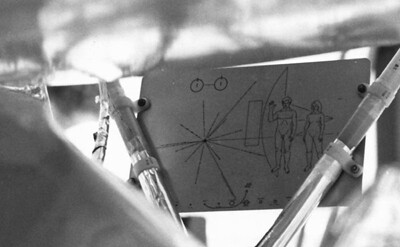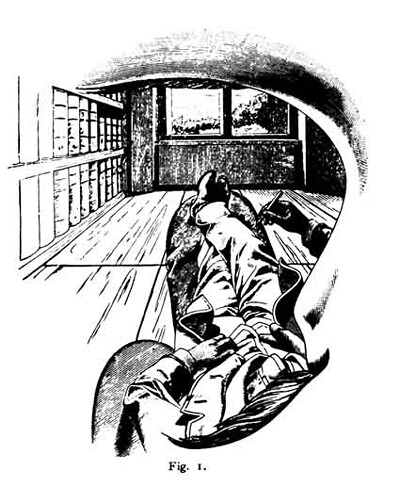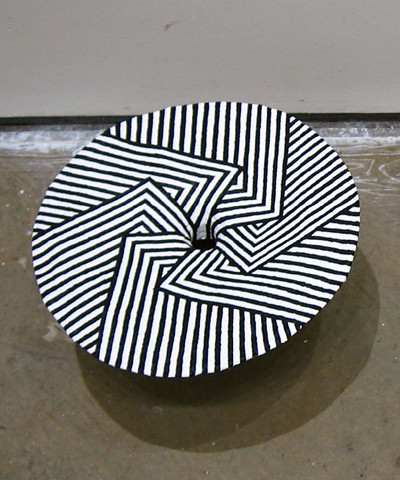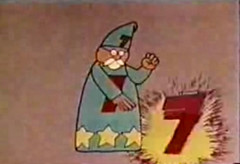The best picture of the human soul
“The human body is the best picture of the human soul,” wrote Wittgenstein. I do not know what he meant, but it is easy to imagine a home for this remark, maybe a gallery of sculptures of ancient Olympians poised to throw a javelin or discus; a patch on the rucksack of a Wandervogel identifying wildflowers along the Spree; the cries of a coxswain on the Cam; a post-game interview with Shaq, who praised Aristotle for his belief that “excellence is a habit”; a block-lettered banner strung across the glass front of the Planet Fitness you see into from the highway on your drive home. Maybe Carl Sagan said something like this to the NASA people when he proposed his and his wife’s design for the plaque on the Pioneer 10 spacecraft, the naked man and woman standing side by side, waving, perhaps the first picture of the human soul to make it out of the solar system, a message to extraterrestrial life that our bodies are shaped like this, a fundamental and informative fact, to be sure, though perhaps less expressive of our soul than the fact of our having sent Pioneer far beyond our world.

Say we accept Wittgenstein’s dictum; what might the best picture of the human body be? The gingerbread man gets something right, but the head-to-toe humanoid form is usually someone else’s, not your own. The most basic body might not be one you see walking around, but the one you are. Following this suggestion, Ernst Mach took a wild stab at first-personal bodily representation by attempting to draw in the most literal way what met his left eye, but the result suggests a terrible misunderstanding.

Some recent work by Matt Capezzuto, an MFA painting student at Yale, is more promising. Maybe the best picture of the human body—the body that is lived, unspeakable, coextensive with the soul, and always already yours—is a surface with a hole in it.




Say we accept Wittgenstein’s dictum; what might the best picture of the human body be? The gingerbread man gets something right, but the head-to-toe humanoid form is usually someone else’s, not your own. The most basic body might not be one you see walking around, but the one you are. Following this suggestion, Ernst Mach took a wild stab at first-personal bodily representation by attempting to draw in the most literal way what met his left eye, but the result suggests a terrible misunderstanding.

Some recent work by Matt Capezzuto, an MFA painting student at Yale, is more promising. Maybe the best picture of the human body—the body that is lived, unspeakable, coextensive with the soul, and always already yours—is a surface with a hole in it.





7 Comments:
The human body is the best picture of the human soul,” wrote Wittgenstein. I do not know what he meant
I may be mistaken, but one might read that as a statement of the old and mad king Ludwig W.'s preference for Uncle Meat.Strip away the language-logic jass, and one sees LW for what he wuz: a heathen! Really he was an exhausting and nearly psychotic little creep (see Witt.'s Poker for details), however brilliant initially.
Uncle Meat is one of my least favorite Zappa albums. I like some of the compositions (Uncle Meat, Dog Breath Variations, King Kong), but the overall grotesqueness is too much for me. You get the sense that the melodies were written first and nonsense lyrics added second. (I think that Zappa's lyrics typically matter and are good, though that's probably a minority view.) But my rejection of the album is more primal and direct, and harder to articulate. What I find unpleasant is that particular collection of timbres. Yet other bizarre collections of timbres of Zappa's I accept--Absolutely Free is the tonal equivalent of a trash truck, with all the bashed-in parts and stains, but I find it charming, and the trash pictures of Burnt Weeny Sandwich are astonishingly beautiful. I want to say that I don't trust the sonic palette of Uncle Meat; I don't trust that it comes from the place of music, even the expanded place of music that Suzy Creamcheese comes from. And then there's the quasi-classical, double-reed-overdub-frenzy songs, which, the amount of work that went into them is way out of proportion to the aesthetic effect.
Wittgenstein as a heathen, though... Psychotic I can certainly see. His demands on other people were unreasonable and morally cruel. As for early/late W, I agree that TLP was brilliant and inspired, later stuff less so. I read Philosophical Investigations mostly for the pictures. I like the part about watching just an excerpt from a coronation, and the part about the rags turning into a rat. And I do think it's a good move to try to dispell mysteries surrounding a word by explaining how you'd teach it to somebody.
FZ and Ludwig W.; what a pair (imagine FZ writing a jazzy-atonal piece for LW on clarinet eh).
Firstly, FZ.
I beg to differ. Uncle Meat is one of my faves of FZ/Mothers, tho' I would agree it's flawed, like most FZ product. The Uncle Meat-- Dog Breath Variations sequence itself was for me what authentic rock was supposed to be: not bubblegummy or merely blues, (or Beatlesque bombast) but wild, unpredictable, surreal in good sense: Eric Satie with Hendrix, etc. The strange orchestration--electric harpsichord with reeds and g-tar, or as you yawped, "quasi-classical, double-reed-overdub-frenzy songs": that sounds oodles more scarybeautiful than what the Beatless or other rock people were doing, even the G. Dead or Hendrix, etc. FZ did some great music after UM, but UM sort of established his sound; again, like a Satie sensibility (with the atonal Varese, and Stravinsky-lite) with some rock and pop influences, and even some noirish jass ( FZ of like Grand Wazoo, Studio tan nearly Stan Kenton-like in sections). FZ was all over the map and a bit unfocused perhaps, but listen (on Youtube) to like some of his stuff live: even the porn rock-jazz of Overnite Sensation (sort of FZ mature sound, if you will--a bit beyond UM) has some amazing music ("Montana" on Youtube straight up rocks, however silly the lyrics are).
(I saw a poster for some early SF shows I think at Winterland with FZ/Mothers and Dead: LA hepcat-greasers meet the Haight 'heads. The Dead played a few cool jazzy jams but could never compete with Dog Breath or a decent mothers jam: Bunk and Ian and the boys (and FZ, tho' yeah he was an a**hole) could really play, unlike the Haight fiddlers (the best Dead band was when JG paled up with Keith Godchaux, tho' his old lady---eh. The opium Dead if you like). King Kong itself as nice a rock jam (tho' could use some modulations or something) as the Dead ever did. FZ tho' was not the most subtle of musicos, but he produced 2-3 hours of intense, good music: few rock bands can say that ( I think the best of Steely Dan (ie albums up until the coke-noir of Aja (sort of great technically, but emptyempty) in some sense the greatest rock productions, but a bit zuckery in spots). Yet most rock was anticipated by Debussy and Satie, if not Mussorgsky, however odd that sounds. Late Claude was writing very odd if not pagan musick, but most scenesters think of Clair Du Lune or something when they hear his name.
((LW: TLP still knocks me out, though it's strange if not contradictory, and perhaps more platonic (the great mirror etc.) than some realize.)))
But late LW ah think moved away from that Fregean-platonic view (the TLP's view of formal logic as merely tautology and contradiction may bother logicians more sophisticated than myself, tho': I wager it bothered Quine); yet even in the TLP the semantic ideas seem fairly empirical, if not nominal--meaning of a word (or name) is the object being referred to. But LW was not one for clarity; and really for analytical phil. I tend to read (and prefer) Carnap and Quine the nominalist (tho he also hedges, and doesn't completely reject the Fregean ghosts) .
I don't really care for the Investigations , but ontologically-speaking (my goof on Uncle Meat) I contend that LW had moved towards a sort of naturalism: supposedly he was as fond of Wm. James' Principles of Psychology as he was of metaphysics. And I think that was Gilbert Ryle's view as well. The "language game" itself could be read in nominalist terms, I believe: so the great mirror turns out to be, yeah, the great meat.
------------------
(noise chat, continued. Really Zappamusic is quite mad (tho' also quite lyrical and sensitive in sections), and FZ was not some Mozart-like deity as some whacked-out scenesters believe, but he carries on surrealist tradition ala Breton, to some extent, doesn't he? I guess jazz traditionalists, or the symphony set don't care for him. I am not a pro musician (I play piano for kix), yet I think there is something to admire there, however much it might offend reunite-sipping smooth jazz fans, or those who think Steve Reich's world beat is the greatest noise since, oh, Brahms or whatever. Mom, apple pie and blasting Hendrix in the neighborhood on occasion: Amerika. )))
That's a lot to work with; I can't resist dorking out in a my space "favorites" fashion.
Believe me, I've youtubed a lot of FZ. The day I discovered the invention I went straight for Inca Roads. The '73 "Mothers" is probably my favorite Zappa bands. I'm not really into Zappa as a soloist till the 70s. (Been dorking out major with you tube Van Halen clips; might write about this.)
Agree that the Dead was best with Keith Godchaux, though I am a Donna fan, too. Prefer Dead jams to Mothers jams, which could never be called "kind" in any respect. (Though check out KK on the Ark live CD from Beat the Boots--the kindest FZ ever managed to sound.) Jerry was at his melodic peak in like the first half of 1977. Not noodly, but long, singing, lyrical lines. Disappointing to hear shows just a little later that year where he's just goofing around in the box-shape of the scale on the fretboard.
I'm a big Steely Dan fan. I've never agreed with the studio-slick charge--their music sounds thoroughly human to me--but I think we can agree that Aja is less inspired (& less weird) than their early albums. I esp. like Pretzel Logic, which is so un-slick as to have acoustic guitars. While I'm not generally a vinyl nut, I think that Steely Dan must be heard on record. The drums benefit most.
The only Debussy I know is piano music; it is perfect. Turns a walk in the park into an art nouveau mystery tour; lamp posts bend to you and speak.
TLP is a confusing book for me; there's the frame which seems to disavow the "substantive" part, and then the "substantive" part, which it's hard to tell if LW even thought that stuff was thinkable. I prefer to suspend the frame and just try to imagine what the contentful stuff might mean. Agreed about Platonic vibe, though I think that Platonism is widely misunderstood; I've been meaning to write about formal isomorphism as discussed in the gramophone section.
FZ as surrealist & not Mozart-like: agree. More modal than melodic. Do like Steve Reich, whose music I regard, like Bach's, as direct psychological manipulation, sounds to direct, sustain, & slowly shift brain states.
I like Frege but derive no pleasure from Carnap or Quine. Do not understand at all what is at stake in questions of ontology, platonism vs. nominalism.
Philo. phirst.
I like Frege but derive no pleasure from Carnap or Quine. Do not understand at all what is at stake in questions of ontology, platonism vs. nominalism.
I am not a professional filosophe, but am fairly well-read in analytica (and did a few phil. classes back in the day, including formal logic). There is something at stake, though many of the logic people gloss over it. It has to do with those abstract entities that Frege championed (including not only "logical form" but mathematics itself really). My own sense is that analytical phil. sort of broke into two camps, early on: the logicists and positivists, more or less.
(OK, this might be debatable, but I will give it a whirl--some windbag such as Holbo might quibble): The logicists were all about pure formality and preserving classical mathematics, infinity, a prioricity, platonism etc., as well as updating predicate logic (which Frege does--tho' the greeks were never fond of infinity as a number). The positivists--Vienna Circle, really--- followed the physicists. The language was to be put into order for empirical science, really; propositions were meant to refer to observable, confirmable events, tho' the "truth" of those events might be probable/contingent (and Vienna circle more knowledgable in matters of probability and fallibility than the Fregeans (note that Witt. barely mentions probability at all in TLP; even Russell had read his Hume closely and I think quite more knowledgable on induction than mad-king LW). The supposed platonism, formal logic, Cantorian problems, were not nearly as critical (tho' I think they were an issue to some extent) as the new physics, Einstein, physical sciences, so forth. Carnap was Kantian early on, but moves, I believe to a more nominalist perspective--the denial of abstract entities, universals--and any supposed transcendent realm of Forms (or synthetic a priori), where the language (he still holds to analyticity and to a formal propositional language, however: tho' there is an essay from like 50s where he seems to be in agreement with Quine's Two Dogmas, which I read as nominalist, even tho' some say it isn't. Quine [with Goodman] also wrote an essay concerning Constructive Nominalism). Nominalism is I suggest quite a radical step (and an issue most logic types skirt): it really implies a constructivism where all knowledge (whether linguistic, scientific, mathematical) is a posteriori, experiential, and, alas, empirical.
http://philosophy.ru:85/edu/ref/sci/carnap.html.
------------
Then muzak. Some Dead entertains me for a few minutes, tho' ah believe they were overrated. Mars Hotel/Blues for Allah are ok; or Axoamoxoa instrumental playing at end. Jerry was lazy methinx-- as were most hippies. Whatever. I caught a few shows and it wasn't as cool as some think. The older 'heads are usually alright, but a lot of disasters, mostly drug-alcohol related, obviously (including now Vince). And I don't care that much for Weir, and what they became. Phil is OK.
I enjoy FZ's jazzier stuff, starting with Uncle Meat; I am not into his caca stuff so much anymore--tho' Overnite Sensation should be counted as a type of unique sort of X-rated commentary meets rock-jazz. Apostrophe has some choice cuts: however trite Cozmic Debris may be (see it on u tube) FZ really just rox bigtime, Hendrix-like; Uncle Remus also a pretty cool numner (Duke can play). Live at the Roxy has some way cool jazzy grooves--the Purple Lagoon, Black page, Sofa, etc--but then he has all the caca-p p stuff as well which is not so cool. Or Bongo Fury with Beefheart (another bizarre near genius); but again I like some, and some just bores me. SO like 33% of FZ I think is great; 33% is interesting sometimes if weird; 33% I don't enjoy (the Lenny Bruce schtick). (same about for Beefheart---). Inca Roads has some nice tunes: I like title tune--sort of fusion before it was commodified--but not as much as say the stuff mentioned above.
The Dan obviously a more commercial venture, and quite a bit more focused than GD or FZ (ah wager Frank realized that, and was influenced by our boys Don and Walt). Countdown to Ecstasy (yeah I got vinyl) probably one of, if not THE tightest rock record ever. What other band ever played anything like Bodhisattva or King of the World? None, really. Not even FZ. Pretzel Logic as well, but I think once Diaz left, they got more into that rnb sound that I am not so into' tho' Royal Scam has some definitely cool musick: Caves of Altamira as fine as the best of Ellington, ah think (again, it's the session guys tho'). Aja is cool in places (title track live is quite amazing) but they got way darker ah think. Josie sort of like Kafka meets, oh, a mellow hendrix sound. Donnie F. is not a happy camper (tho' I think they took the Burroughs vibe to the bank, and that was a bit unfair to the beat kitties). Whatevs.. Maybe not Steve Reich, but ah'm one who prefers some chromaticism and complexity to that vermonty modal-world beat. Reich is a genius of sorts, I guess, but the monotony just gets old: ah mean compare it to La Mer. OR late Scriabin. Whoa! Alex Scriabin was, like one of the wiggiest cats ever, surpassing even the phrench or Chopin: what sort of person writes music for the death of the sun? AS did. I guess I've spewed enough.
Never saw the Dead but made it to a lot of Phish shows in the early 90s. Coached a couple of tripping friends through a tough spot when they got the news on the afternoon of August 10, 1995. Will check out Scriabin CD loaned to me by a friend 5 years ago & not yet played, if the goo in the CD-R hasn't ceased to contain the relevant shapes. Zappa: I like his 70s satirical lyrics, but his 80s obsession with televanglists is kind of obvious and unnecessary. I like your perspective on Countdown to Ecstacy & have recently been rethinking its place in the SD canon. The King of the World guitar solo is pretty amazing--country rock rebuilding Pat Metheny climaxes out of rootsy, organic stuff. On darkness: Royal Scam might be the darkest lyrically, but on Aja the darkness is performative; you get the sense that they're living it and not just poetizing. They are not well. Burroughs a good reference point. Charlie Freak always reminded me of the Erlkönig, the same racing coach in the night. Caves of Altamira unspeakably deep. I believe they, the cave painters, did hear the call (just as Walter Benjamin claims). Agree with the Zappa-Hendrix thing, e.g., tearing into the Stinkfoot solo. Do like Zappa's early but not late 70s bathroom humor, plus I like the Apostrophe/Overnight Sensation emphasis on Zappa's voice, esp. with all the worked out prog/fusion stuff happening, as if all the instruments were mixed down to one track and Zappa gets the other one & 50% of the overall aural picture is Zappa in the isolation booth, singing into a handheld mic and looking directly at you. I like the sense with Zappa that every composition and performance is a throwaway, no masterpieces or definitive statements. That's why the Yellow Shark project struck me as a little off--his stuff is best when played weirdly by weirdos.
Post a Comment
<< Home